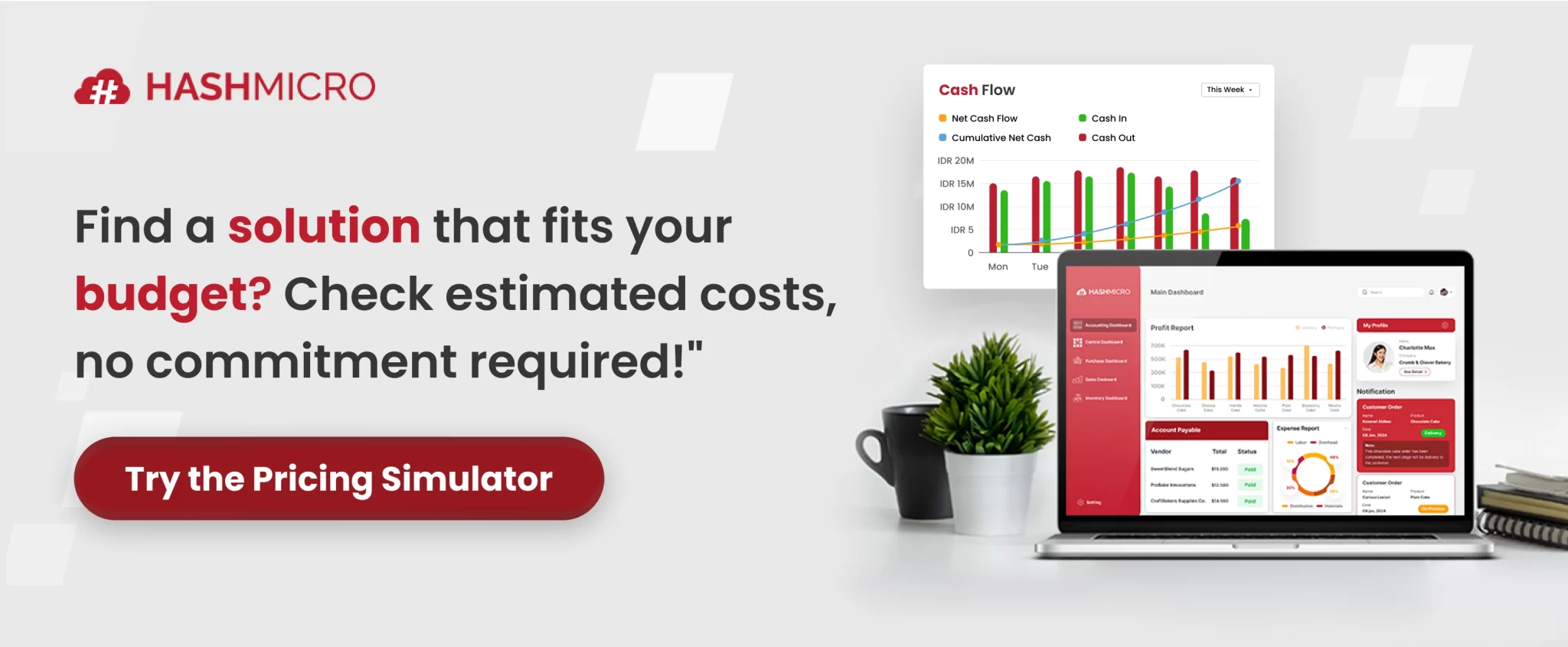Project management software is essential for reducing the risk of project failure, even within skilled and dedicated teams. A significant number of projects fail due to inadequate coordination and insufficient transparency.
Without a well-defined structure, tasks may be overlooked, communication can break down, and deadlines are often missed resulting in wasted time and financial losses.
Project management software integrates planning, tracking, and collaboration features to provide a centralized solution that keeps teams aligned, ensures real-time visibility, and promotes timely project delivery.
This article examines how project management software can strengthen collaboration, improve operational efficiency, and support achieving organizational goals.
Key Takeaways
|

What is Project Management Software?
Project management software is a digital tool designed to help teams plan, organize, and manage projects more efficiently. It integrates all the moving parts of a project such as task assignments, deadlines, resources, and budgets, into one centralized platform.
With this software, project managers can easily track progress, collaborate with team members, and ensure everything stays on schedule and within budget.
Whether you’re handling a simple task list or a complex, multi-phase project, the software provides the structure and visibility needed to deliver better results.
Key Features of Project Management Software
A reliable project management software offers a range of features that support each project stage. Below are some essential functions that help teams plan, execute, and deliver work more efficiently.
- Planning: Project management software helps teams outline project goals, define deliverables, and map out the steps needed to complete a project efficiently from the start.
- Scheduling: Timesheet management systems enable managers to create detailed project timelines, assign due dates, and allocate resources efficiently to ensure tasks are completed on time.
- Estimating: The software supports accurate time and cost estimation by providing data-driven insights based on previous projects and current resource availability.
- Tracking and management: With real-time dashboards, project management software allows teams to monitor progress, identify bottlenecks, and adjust plans.
- Time tracking: Built-in time tracking tools help monitor how much time is spent on tasks, improving accountability and optimizing productivity across the team.
- Task management: It simplifies task delegation, making it easy to assign responsibilities, set priorities, and monitor task status throughout the project lifecycle.
Project Management Software Benefits
Adopting project management software can significantly improve how your team works, helping you deliver projects more efficiently, with better results. Below are some of the key benefits businesses can expect when implementing the right solution:
- Project management software provides real-time updates on progress, deadlines, and potential issues, allowing managers to make timely and informed decisions.
- With centralized communication, file sharing, and task assignments, teams can stay aligned and work more effectively.
- Built-in scheduling and time tracking tools help allocate resources efficiently and ensure projects stay on track.
- The software allows you to monitor expenses, forecast costs, and avoid budget overruns with clear financial tracking and reporting.
- Detailed reports and analytics help evaluate project performance, identify trends, and support continuous improvement in future planning.
Types of Project Management
There is no single approach that works for every project. Each team and industry may require a different method to stay organized and deliver results effectively. Below are six most common types of project management:
1. Waterfall project management
This is a traditional, linear approach in which each phase of the project such as planning, execution, and delivery is completed before proceeding to the next.
It works best for projects with precise requirements and fixed timelines, such as construction or manufacturing.
2. Agile project management
Agile focuses on flexibility, collaboration, and continuous improvement. It breaks projects into smaller tasks or iterations (called sprints), allowing teams to adapt quickly to change. This method is commonly used in software development and fast-paced environments.
3. Scrum
Scrum is a specific Agile framework that organizes work into time-boxed sprints, typically two to four weeks long.
Teams hold regular stand-up meetings to review progress and adjust priorities. It’s ideal for projects that require rapid development and frequent feedback.
4. Kanban
Kanban uses a visual board to manage tasks and workflows. It emphasizes continuous delivery and helps teams focus on what’s currently in progress. This method is helpful for teams managing ongoing work with shifting priorities.
5. Lean project management
Lean focuses on maximizing value while minimizing waste. It encourages efficiency, streamlined processes, and the elimination of non-essential tasks. This approach is often used in manufacturing but is increasingly applied to various industries.
6. Hybrid project management
A hybrid combines elements of both traditional (Waterfall) and modern (Agile) approaches. It allows teams to plan with structure while staying flexible during execution. This model is ideal for organizations that need both predictability and adaptability.
8 Project Management Software for Your Business
Choosing the right project management software can significantly affect your team’s efficiency. With so many options available, finding a solution that matches your business needs, team size, and workflow is essential.
Below are eight reliable project management tools that can help streamline your processes and improve overall productivity.
1. HashMicro Project Management Software
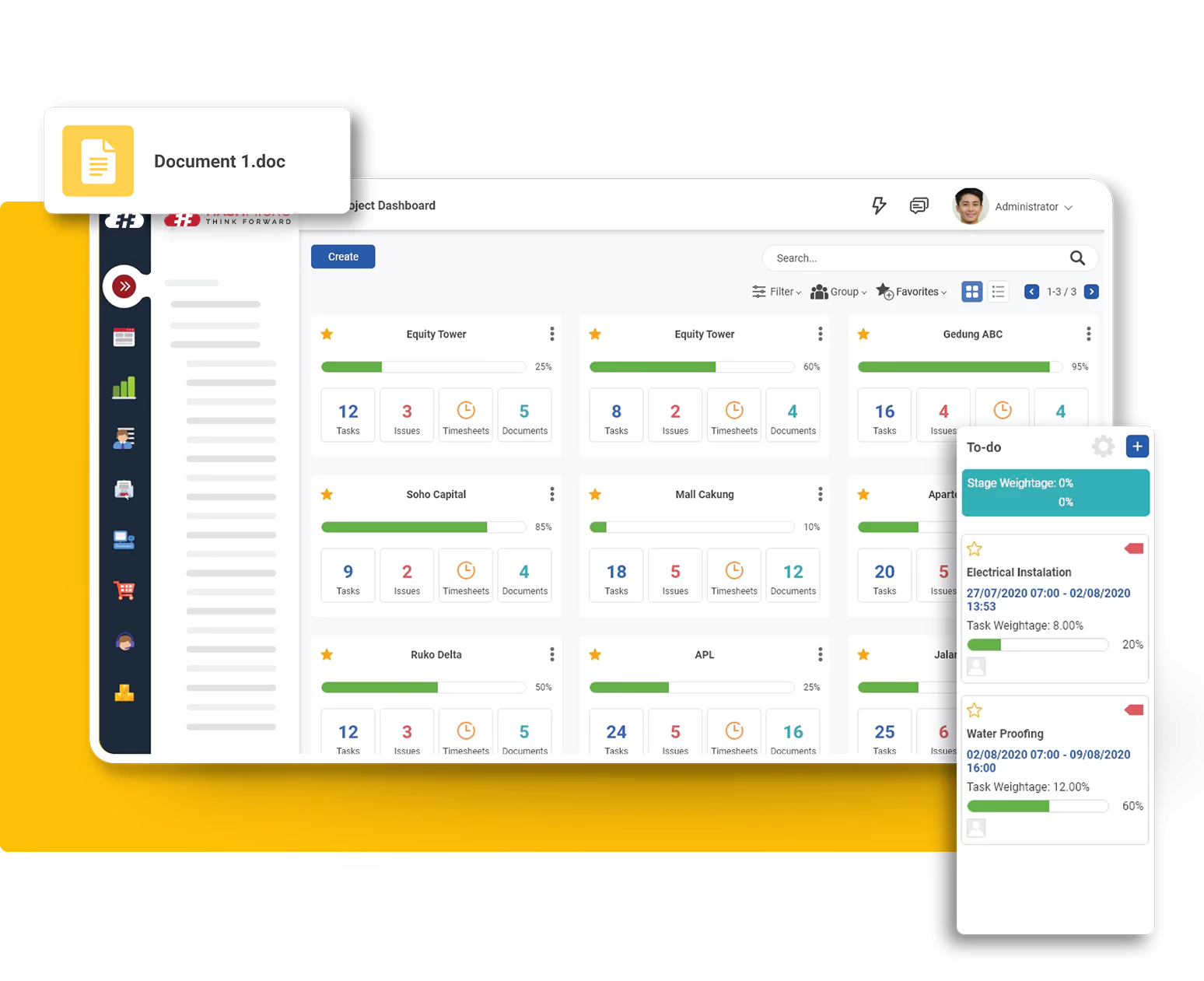
HashMicro project management software offers a comprehensive, cloud-based solution tailored to help businesses manage projects more effectively from end to end. What sets HashMicro apart is its ability to seamlessly integrate with other business systems such as accounting, inventory, CRM, and HR creating a fully connected workflow across departments.
The platform is designed for scalability, making it ideal for growing businesses and enterprises that handle multiple complex projects simultaneously.
Its intuitive interface ensures that project managers and team members can easily navigate the system without extensive technical training. Additionally, HashMicro provides strong local support, customization options, and flexible modules that can be tailored to specific industry needs.
Key features of the HashMicro project management software include:
- Budget and expense tracking: Control project costs with real-time budget monitoring and automated expense recording.
- Progress monitoring and reporting: Get detailed project insights through visual dashboards and customizable reports.
- Task and resource management: Assign, prioritise, and monitor tasks while optimising resource allocation.
- Integrated invoicing: Automatically generate and manage invoices with seamless integration to accounting modules.
Discover the right project management software plan for your team. Check out our pricing options now.
2. Zoho Project Management System
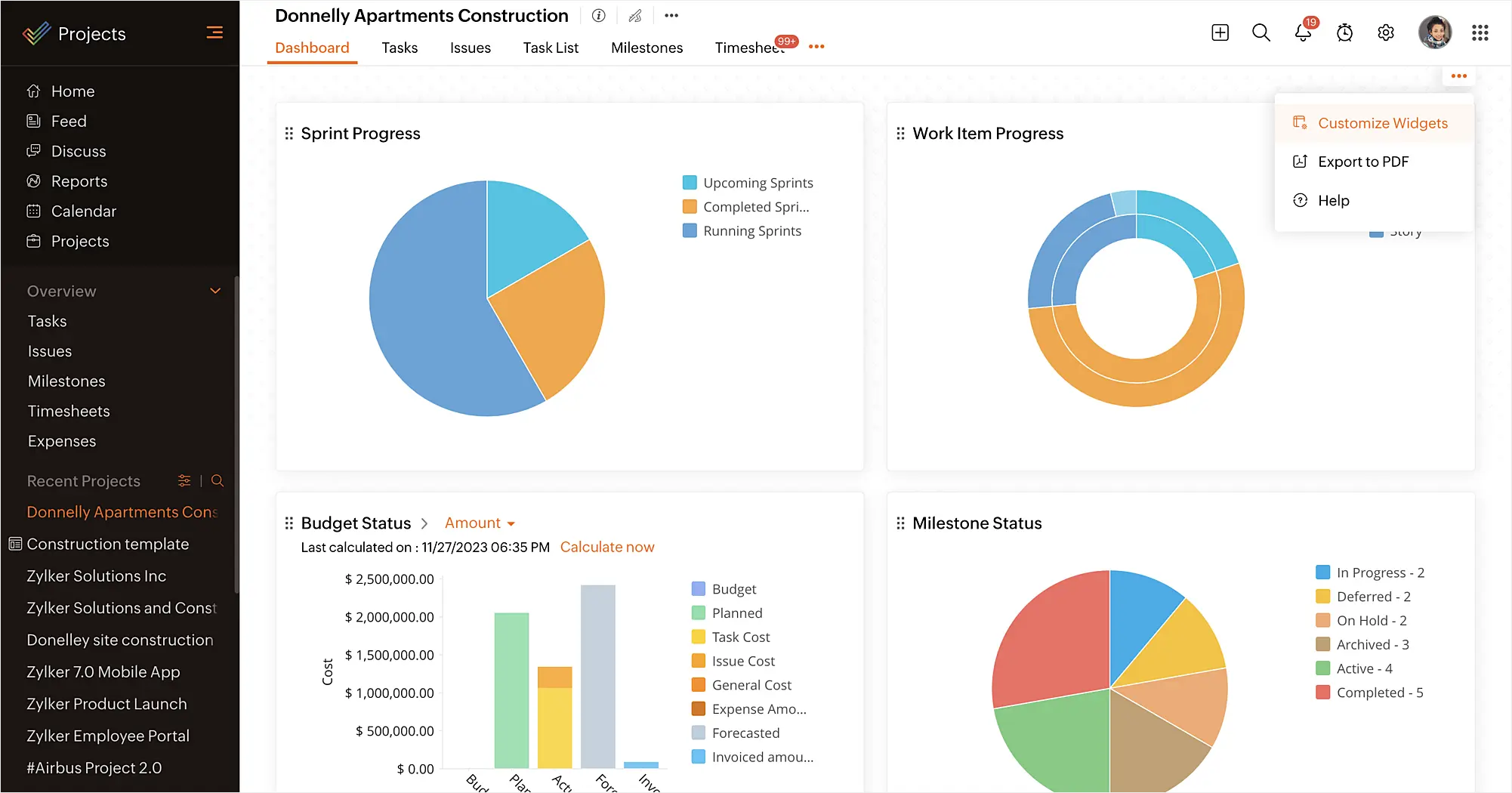
Zoho Project Management System is a comprehensive tool designed to help businesses easily plan, track, and manage projects. Known for its flexibility and affordability, Zoho offers an intuitive platform that supports both small teams and large enterprises.
Key features include time tracking, resource allocation, Gantt charts, document sharing, and seamless integration. With its cloud-based system and mobile accessibility, Zoho empowers teams to collaborate efficiently.
3. Basecamp Project System
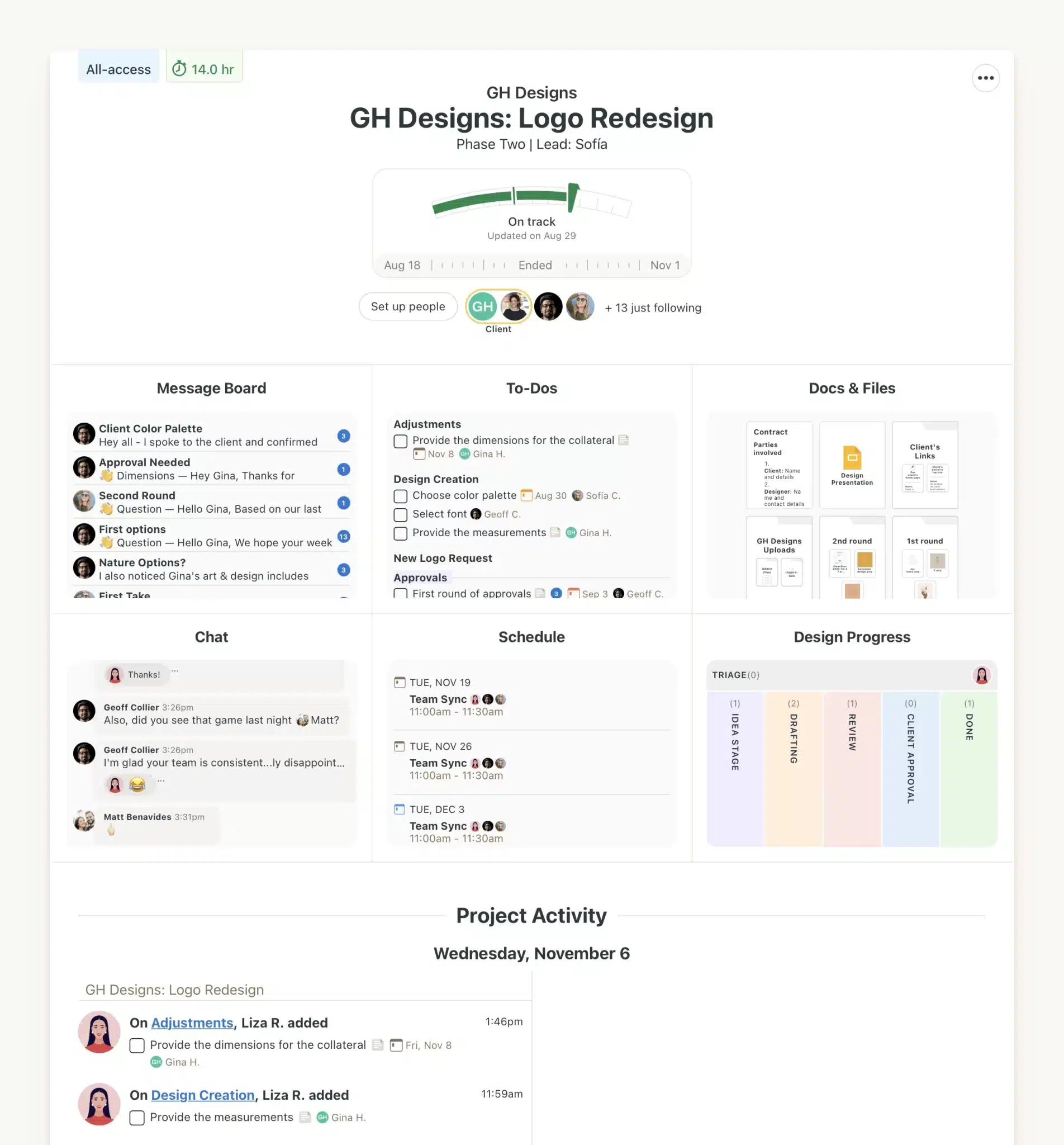
Basecamp is a comprehensive project management platform that combines message boards, to-do lists, scheduling, file sharing, and real-time chat in one place.
It offers tools like Kanban-style Card Tables, visual dashboards, automatic check-ins, and customizable templates to keep projects organized and teams aligned.
Basecamp provides a simple yet powerful solution for efficiently managing tasks, communication, and progress. Its integrations include time tracking, automation, and client collaboration.
4. TeamGantt Project Management Software
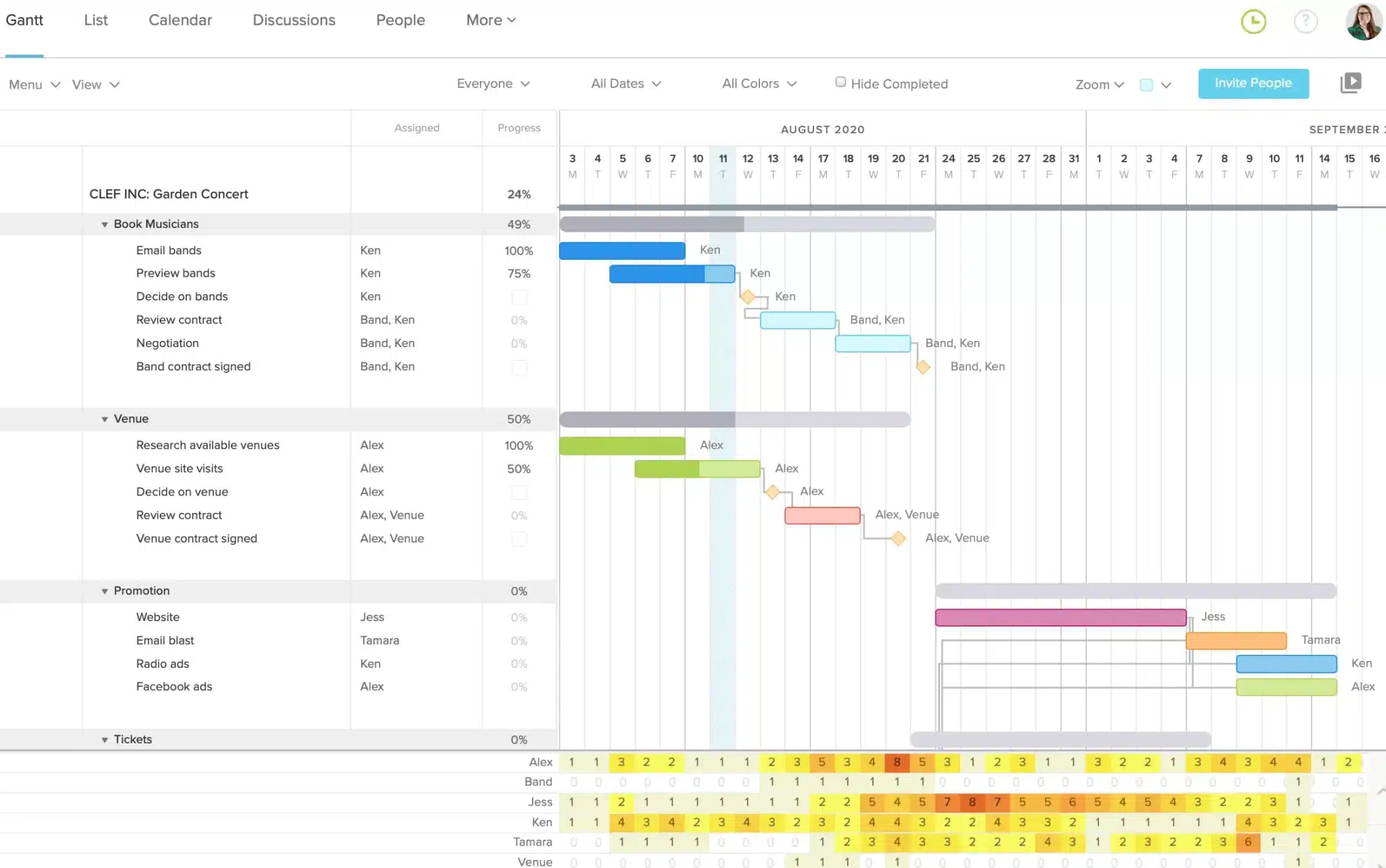
TeamGantt is a powerful yet user-friendly tool designed for businesses that need clear project timelines and resource planning. It features interactive Gantt charts that make it easy to schedule tasks, assign responsibilities, and track real-time progress.
With drag-and-drop functionality, team collaboration tools, and workload management, TeamGantt helps businesses stay organized and deliver projects on time without the complexity of traditional project management systems.
5. Asana Project Software
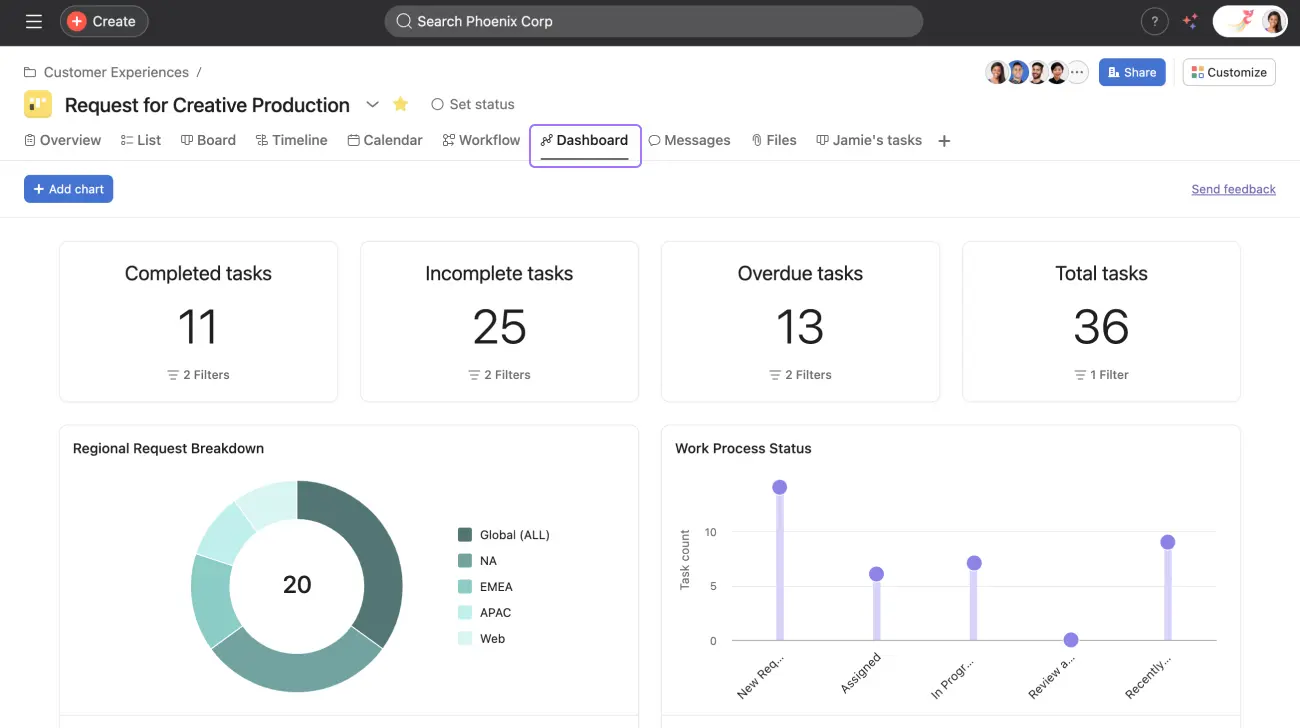
Asana is a versatile project management tool that helps teams easily organize work, track progress, and meet deadlines. Its intuitive interface makes it simple to create tasks, set priorities, and manage projects from start to finish.
Asana offers task lists, timelines, workflow automation, and real-time collaboration, ensuring your team stays connected and productive.
6. Teamwork Projects
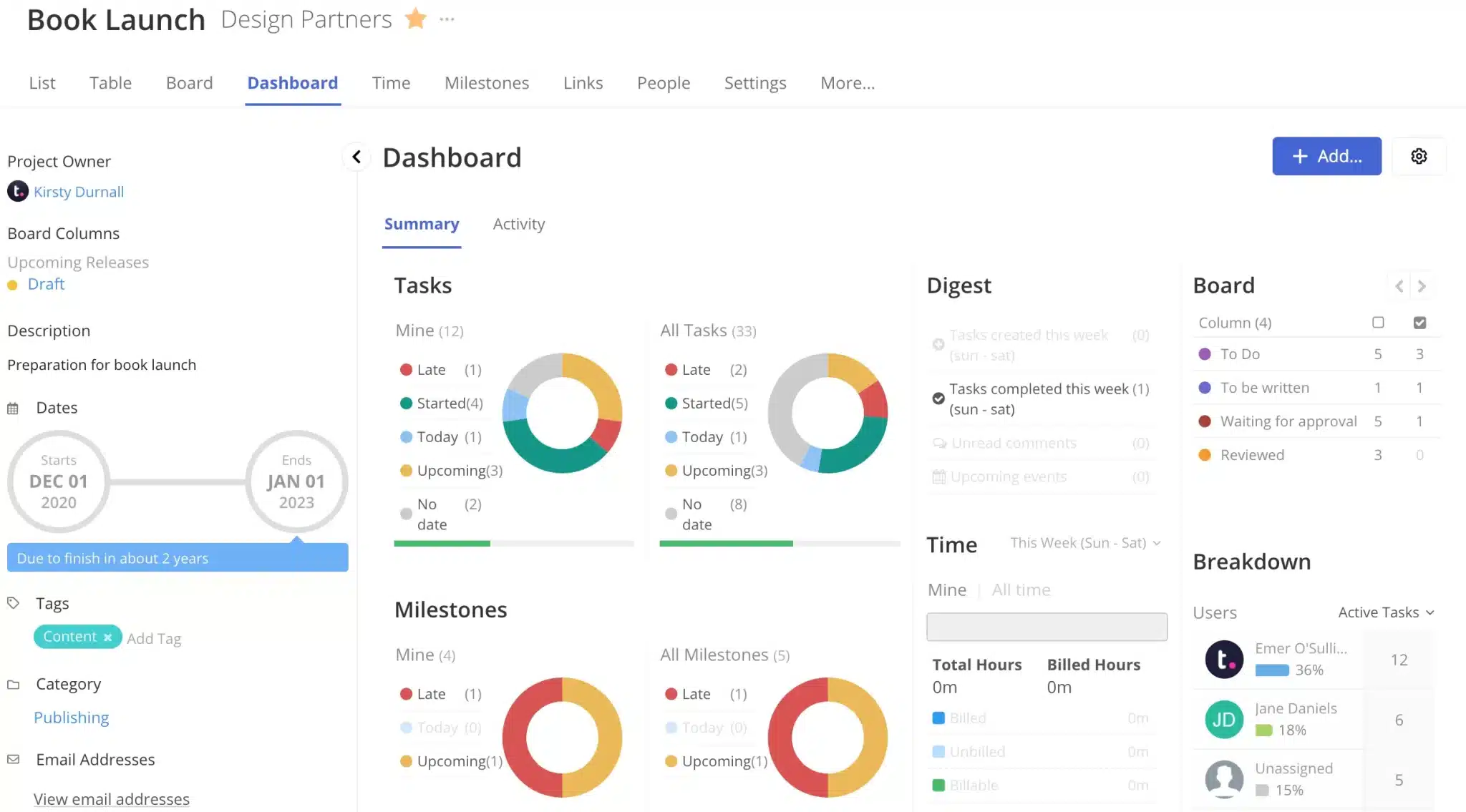
Teamwork Projects is a robust project management platform designed to help businesses plan, track, and deliver work efficiently. It offers an intuitive interface with tools for task management, time tracking, and project scheduling making it easy to keep teams aligned.
Teamwork Projects ensures smooth communication and greater transparency throughout every project stage with features like workload planning, collaboration spaces, and client access.
7. Nifty Project Management Software
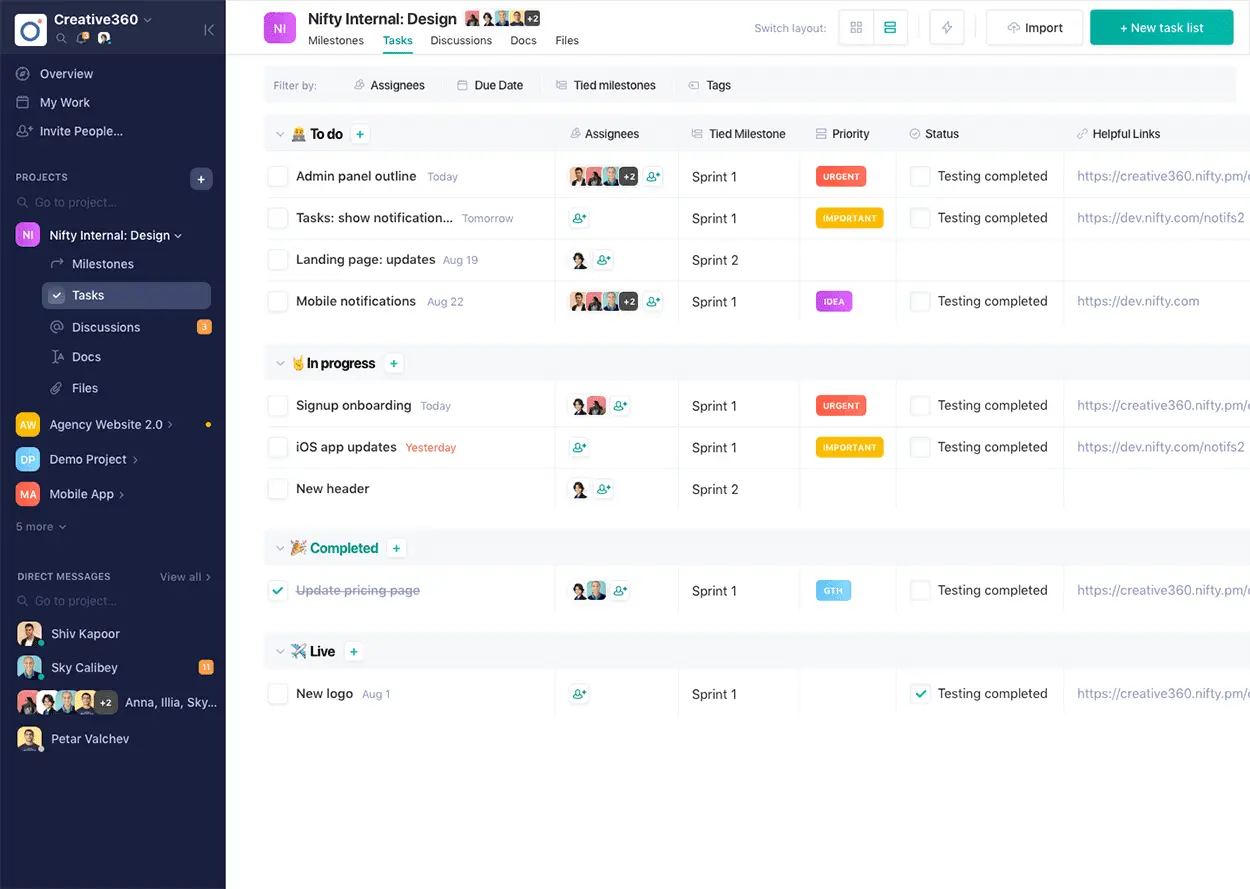
Nifty is designed to simplify project management by bringing tasks, discussions, and timelines into one platform.
With milestones, real-time collaboration, and automation tools, Nifty helps teams stay focused and complete projects faster without the complexity of juggling multiple apps.
8. Twproject Project Management Software
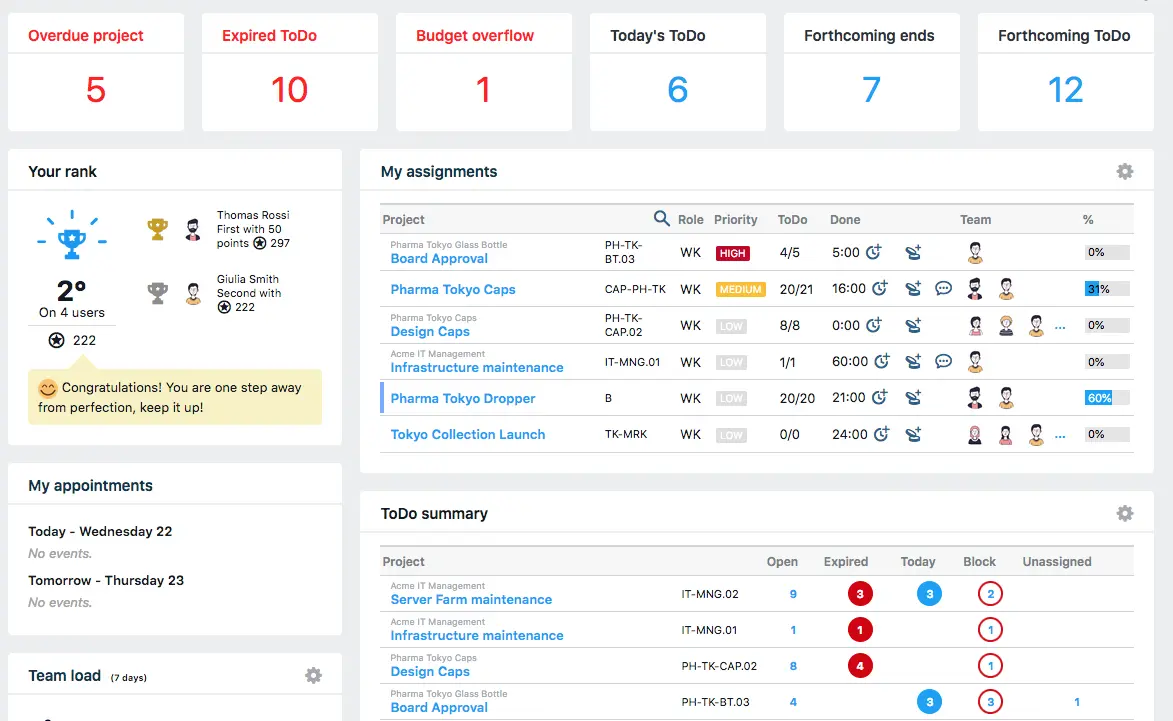
Twproject is a flexible project management tool designed to adapt to your team’s needs. It offers powerful features like task management, time tracking, resource planning, and integrated communication, all within an intuitive interface.
With Twproject businesses can manage complex projects, monitor real-time progress, and improve team productivity without overwhelming complexity.
Conclusion
Optimizing your business processes starts with choosing the right project management software. These tools help teams stay organized and improve collaboration, track progress, and ensure projects are completed on time and within budget.
While many solutions are available, HashMicro stands out with its advanced automation, customizable workflows, and integrated features designed to fit your business needs. With HashMicro you can centralize project data, enhance team productivity, and make better decisions based on real-time insights.
Take the first step toward efficiency and growth. Schedule your free demo with HashMicro today and discover how it can transform your project management.

FAQ Project Management Software
-
What is the main tool of project management?
Gantt charts are one of the most widely used project management tools. They provide a visual timeline of a project, showing the start and end dates of individual tasks, as well as their dependencies. Gantt charts are particularly useful for tracking progress and ensuring that tasks are completed on time.
-
What are the 5 stages of project management?
The project life cycle includes five phases: initiation, planning, execution, monitoring and control, and closure.
-
What is SLA in project management?
A project management service level agreement (SLA) is an agreement with vendors or contractors whose work is crucial to the project being delivered or completed on time.


